Alexandra Witze is a contributing correspondent based in Boulder, Colorado. Among other exotic locales, her reporting has taken her to Maya ruins in the jungles of Guatemala, among rotting corpses at the University of Tennessee's legendary "Body Farm," and to a floating sea-ice camp at the North Pole. She has a bachelor's degree in geology from MIT and a graduate certification in science communication from the University of California, Santa Cruz. Among her honors are the Science-in-Society award from the National Association of Science Writers (shared with Tom Siegfried), and the American Geophysical Union's award for feature journalism. She coauthored the book Island on Fire, about the 18th-century eruption of the Icelandic volcano Laki.

Trustworthy journalism comes at a price.
Scientists and journalists share a core belief in questioning, observing and verifying to reach the truth. Science News reports on crucial research and discovery across science disciplines. We need your financial support to make it happen – every contribution makes a difference.
All Stories by Alexandra Witze
-
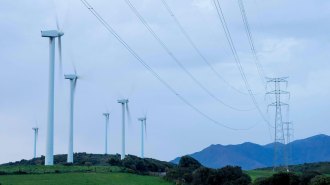 Climate
ClimateHow one device could help transform our power grid
As coal-fired power plants are retired, grid-forming inverters may be key to a future that relies on solar and wind power.
-
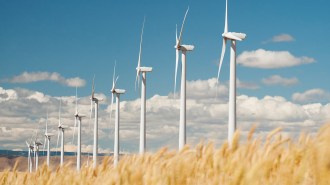 Climate
ClimateIt’s possible to reach net-zero carbon emissions. Here’s how
Cutting carbon dioxide emissions to curb climate change and reach net zero is possible but not easy.
-
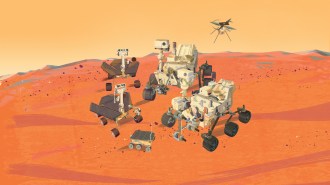 Space
SpaceHow Mars rovers have evolved in 25 years of exploring the Red Planet
Over 25 years, remotely controlled rovers have uncovered Mars’ watery history and continue to search for evidence that life once existed there.
-
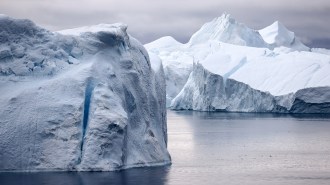 Climate
ClimateA global warming pause that didn’t happen hampered climate science
Trying to explain why global warming appeared to slow down in the early 2000s distracted scientists and shook their confidence.
-
 Climate
ClimateWally Broecker divined how the climate could suddenly shift
Wally Broecker’s insight into the shutdown of the great ocean conveyor belt spurred the study of abrupt climate change.
-
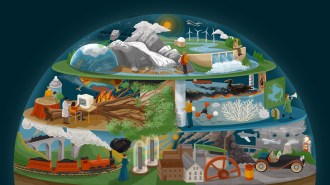 Climate
ClimateHow did we get here? The roots and impacts of the climate crisis
Over the last century and a half, scientists have built a strong case for the roots and impacts of human-caused climate change.
-
 Science & Society
Science & SocietyHow to detect, resist and counter the flood of fake news
Misinformation about health is drowning out the facts and putting us at risk. Researchers are learning why bad information spreads and how to protect yourself.
-
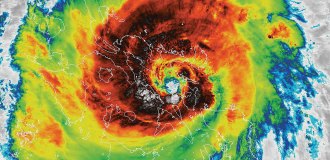 Earth
EarthImproved three-week weather forecasts could save lives from disaster
Meteorologists are pushing to make forecasts good enough to fill the gap between short-term and seasonal.
-
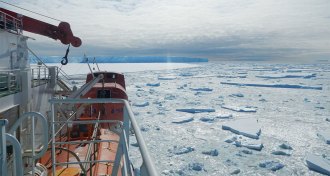 Climate
ClimateThe Southern Ocean may be less of a carbon sink than we thought
The Southern Ocean’s ability to suck up much of the carbon that humans pump into the atmosphere is in question.
-
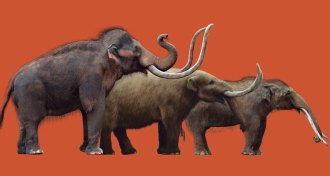 Ecosystems
EcosystemsHow mammoths competed with other animals and lost
Mammoths, mastodons and other ancient elephants were wiped out at the end of the last ice age by climate change and spear-wielding humans.
-
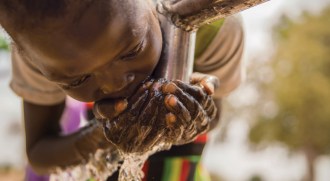 Life
LifeMore than 2 billion people lack safe drinking water. That number will only grow.
By 2050, half the world’s population may no longer have safe water to drink or grow food. What then?
-
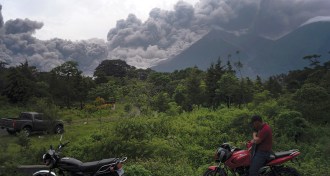 Earth
EarthHere’s a look at the world’s deadliest volcanoes — and the ways they kill
Scientists gathered data on nearly 280,000 global volcano deaths from 1500 to 2017 and sorted fatalities by cause of death, such as lava flows or gas.